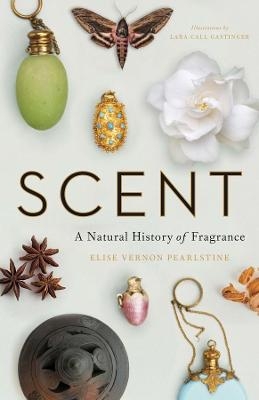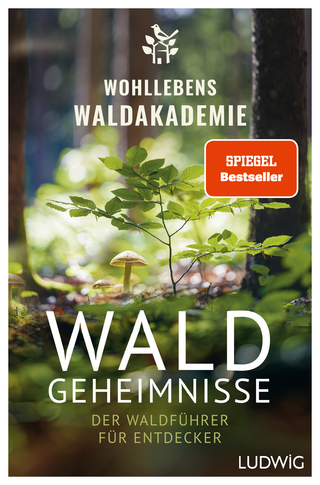
Scent
A Natural History of Fragrance
Seiten
2022
Yale University Press (Verlag)
978-0-300-24696-4 (ISBN)
Yale University Press (Verlag)
978-0-300-24696-4 (ISBN)
A fascinating exploration of the natural history of scent and human perceptions of fragrance from the viewpoint of plant and pollinator
“An evocative journey that awakens one’s curiosity to an oft-forgotten sense.”—Dana Dunham, Scientific American
Plants have long harnessed the chemical characteristics of aromatic compounds to shape the world around them. Frankincense resin from the genus Boswellia seals injured tissues and protects trees from invading pathogens. Jasmine produces a molecule called linalool that attracts pollinating moths with its flowery scent. Tobacco uses a similarly sweet-smelling compound called benzyl acetone to attract pollinators. Only recently in the evolutionary history of plants, however, have humans learned to co-opt their fragrances to seduce, heal, protect, and alter moods themselves.
In this wide-ranging and accessible new book, biologist-turned-perfumer Elise Vernon Pearlstine turns our human-centered perception of fragrance on its head and investigates plants' evolutionary reasons for creating aromatic molecules. Delving into themes of spirituality, wealth, power, addiction, royalty, fantasy, and more, Pearlstine uncovers the natural history of aromatic substances and their intersection with human culture and civilization.
“An evocative journey that awakens one’s curiosity to an oft-forgotten sense.”—Dana Dunham, Scientific American
Plants have long harnessed the chemical characteristics of aromatic compounds to shape the world around them. Frankincense resin from the genus Boswellia seals injured tissues and protects trees from invading pathogens. Jasmine produces a molecule called linalool that attracts pollinating moths with its flowery scent. Tobacco uses a similarly sweet-smelling compound called benzyl acetone to attract pollinators. Only recently in the evolutionary history of plants, however, have humans learned to co-opt their fragrances to seduce, heal, protect, and alter moods themselves.
In this wide-ranging and accessible new book, biologist-turned-perfumer Elise Vernon Pearlstine turns our human-centered perception of fragrance on its head and investigates plants' evolutionary reasons for creating aromatic molecules. Delving into themes of spirituality, wealth, power, addiction, royalty, fantasy, and more, Pearlstine uncovers the natural history of aromatic substances and their intersection with human culture and civilization.
After a seventeen-year career in wildlife biology, Elise Vernon Pearlstine found a second life as a natural perfumer, consultant, and educator. She conducts classes for corporate and private events, instructing students on the biology, artistry, and history of perfume ingredients. Dr. Pearlstine lives on Amelia Island in northern Florida.
| Erscheinungsdatum | 19.05.2022 |
|---|---|
| Illustrationen | Lara Call Gastinger |
| Zusatzinfo | 12 b-w illus. |
| Sprache | englisch |
| Maße | 140 x 216 mm |
| Themenwelt | Sachbuch/Ratgeber ► Natur / Technik ► Natur / Ökologie |
| Naturwissenschaften ► Biologie ► Botanik | |
| ISBN-10 | 0-300-24696-X / 030024696X |
| ISBN-13 | 978-0-300-24696-4 / 9780300246964 |
| Zustand | Neuware |
| Informationen gemäß Produktsicherheitsverordnung (GPSR) | |
| Haben Sie eine Frage zum Produkt? |
Mehr entdecken
aus dem Bereich
aus dem Bereich
Familien und Gattungen einheimischer Pflanzen
Buch | Hardcover (2022)
Haupt Verlag
CHF 67,95


